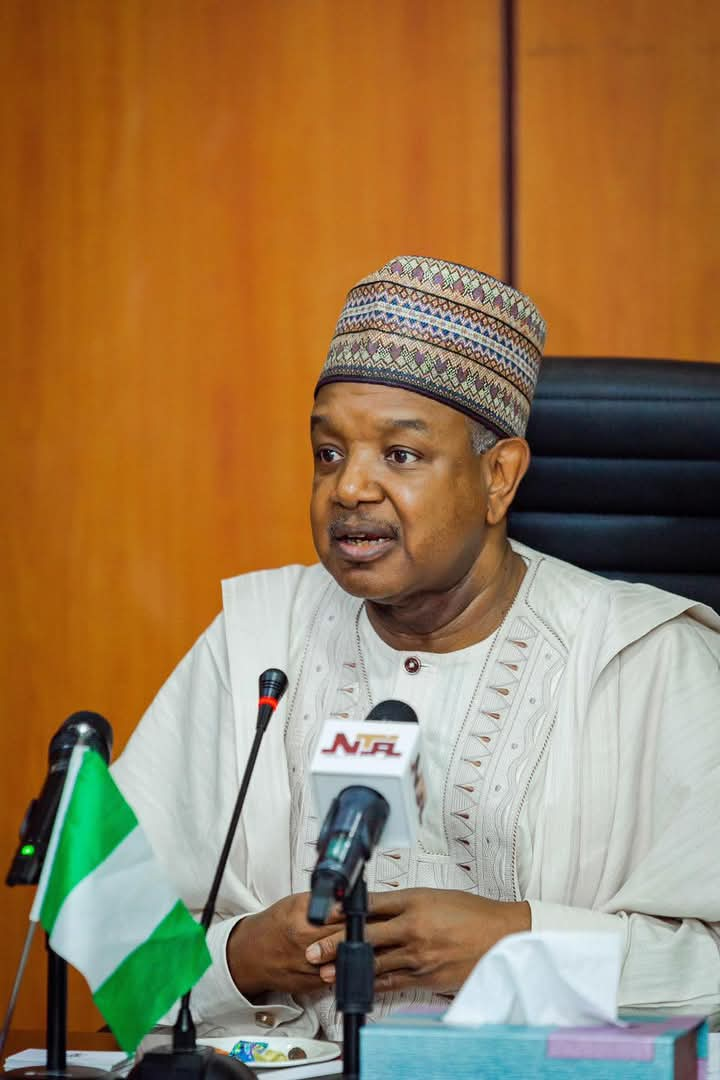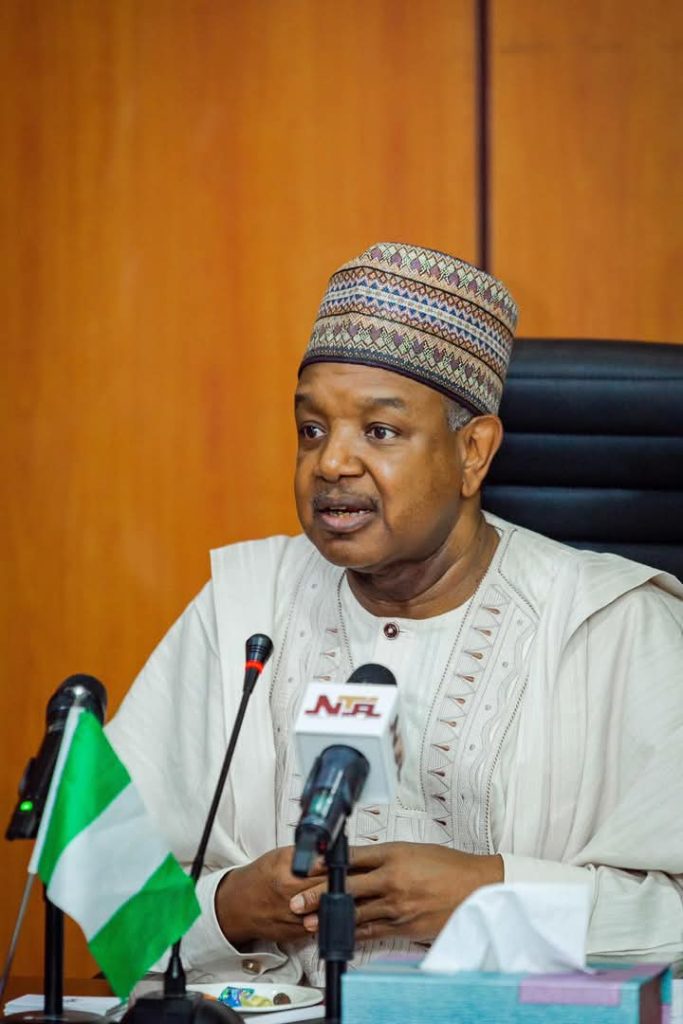The Minister of Budget and Economic Planning, Abubakar Bagudu, has said Nigeria’s economy is on a recovery path, bolstered by bold policy reforms, renewed fiscal discipline, and improved investor sentiment.
The minister spoke while featuring in an interview for an upcoming TV documentary marking President Bola Tinubu’s second year in office, Bagudu said the administration’s “Renewed Hope Agenda” is delivering measurable results and winning the trust of both local and international investors.
“This is two years well spent. President Tinubu confronted Nigeria’s economic challenges with courage, making tough but necessary decisions that are now beginning to yield positive outcomes,” the Minister said.
READ ALSO: Mbah meets Bagudu, Austrian Ambassador, emphasises need for inclusivity
Bagudu cited four consecutive quarters of GDP growth, increased stability in the foreign exchange market, and a resurgence of private sector confidence as evidence of progress.

“We’re seeing stability in the naira, improved revenue, and renewed faith in our economy from both Nigerians and the international community. Even global rating agencies are recognising our progress,” he said.
According to the Minister, the government’s policy direction—especially in agriculture, energy, and infrastructure—has attracted significant interest from foreign investors, including those from Brazil, Belarus, and Saudi Arabia.
“These investors are responding to our credibility and transparency. They want policies that are clear and markets that function fairly. We’re providing that,” he noted.
Bagudu also pointed to major structural reforms under Tinubu’s leadership, including the removal of fuel subsidies and the unification of the foreign exchange market, as game-changing decisions that restored macroeconomic stability.
“We were losing 5% of GDP to a fuel subsidy that benefited a few. The President made the bold move to end it. Similarly, by adopting a willing-buyer, willing-seller exchange rate model, we removed uncertainty and favouritism from the forex market,” he said.
Highlighting budgetary discipline, Bagudu explained that the 2024 and 2025 national budgets reflect a deliberate balance between fiscal responsibility and investment in critical sectors such as health, education, infrastructure, security, and technology.
“The 2024 budget significantly reduced the deficit and sent a strong signal to the markets that we’re serious about reform,” he added.
On debt and monetary policy, Bagudu said Tinubu has shown respect for institutional integrity, particularly in handling inherited liabilities and Central Bank financing.
“Despite inheriting ₦22.7 trillion in Ways and Means financing, the President has insisted on upholding the independence of the Central Bank. That discipline is gaining Nigeria credibility on the global stage,” he stated.
Bagudu credited the Presidential Economic Coordination Council and the Economic Management Team—chaired by President Tinubu and led by the Coordinating Minister for the Economy, Wale Edun—for ensuring alignment between policy formulation and execution.
“This is coordinated governance. The President is not only the chief economic strategist but also the one ensuring everyone delivers results. The private sector is part of this process, not an afterthought,” he said.
While acknowledging that the reforms have posed short-term challenges for citizens, the Minister described the process as a necessary path to long-term prosperity.
READ ALSO: Bagudu: Nigeria’s economic future brightens as fiscal, monetary policies align
“Our economy is like a body in training—it may feel painful now, but the muscles of progress are forming,” he said.
“President Tinubu is taking the tough path now so future generations can enjoy a more secure and prosperous Nigeria. This is not just economic reform—it is a moral responsibility.”



